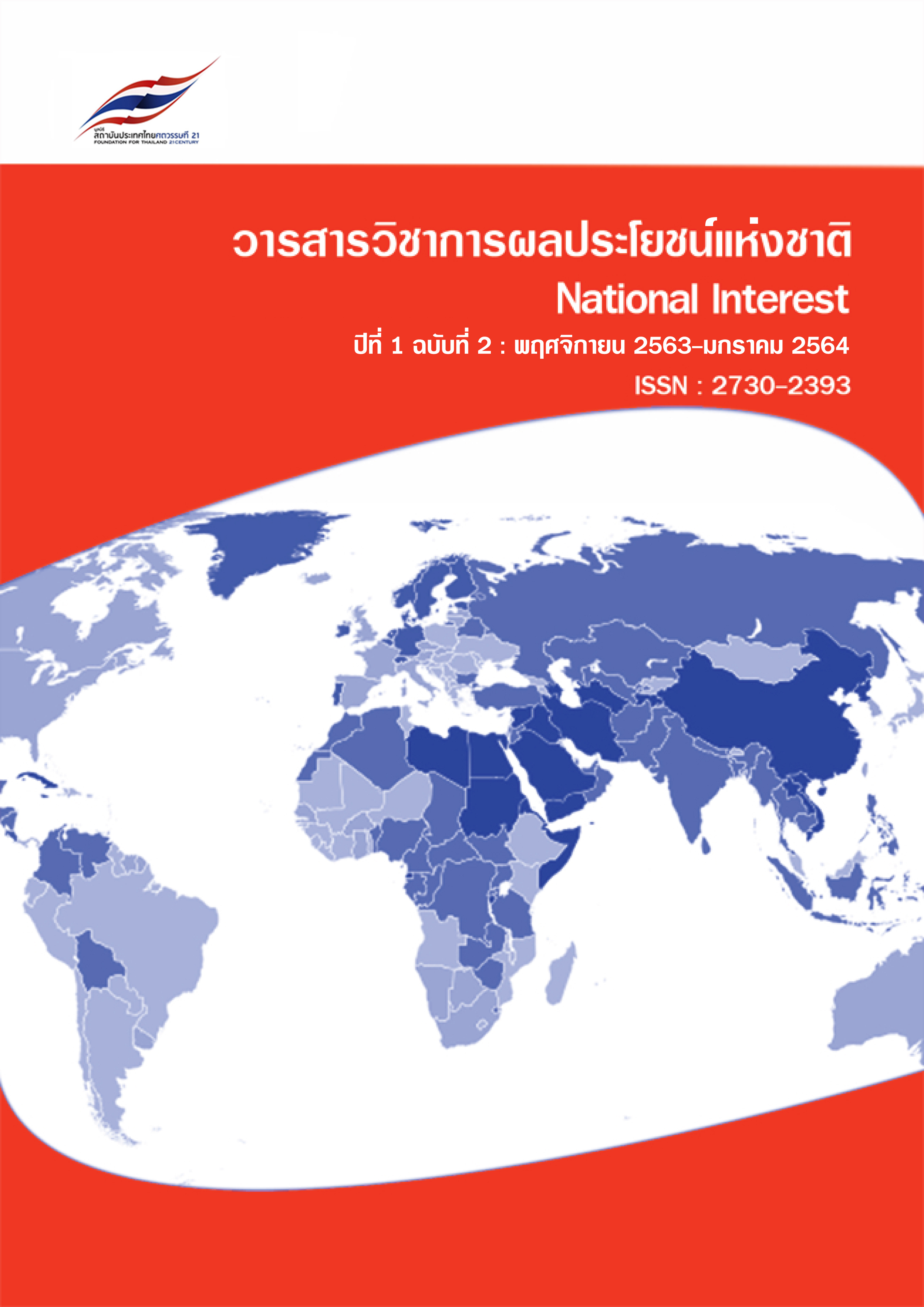Geopolitical identity and nation-building: the case study of the Republic of Kazakhstan
Main Article Content
Abstract
Studying the connections between geopolitics and domestic political attributes of the state such as national identity poses a particular range of challenges to the researcher. The present article explores the potential connections and parallels between the Kazakhstan nation-building project and the nation-state’s geopolitical identity vis-à-vis the Russian Federation and the People’s Republic of China. In the course of this analysis, the researcher has established the lack of the direct connection between nation-building and geopolitical positioning in the case of Kazakhstan. However, it has been noted that the former may influence the latter as far as perceiving threats and opportunities associated with the respective geopolitical centers for the integrity of Kazakhstani identity may be concerned.
Article Details

This work is licensed under a Creative Commons Attribution-NonCommercial-NoDerivatives 4.0 International License.
Thai Journal of National Interest Academic Journal under Creative Commons Attribution-NonCommercial-NoDerivatives 4.0 International License The journal allows access or distribution of academic work without charge or registration. To support the exchange of knowledge Scope covers academic work in geopolitics. Geoeconomics and Innovation
Users can share, copy and distribute all information published in National Interest Academic Journal in any form or medium subject to the following conditions:
Citation — Permission to use, reproduce, distribute, or modify the work. But credit must be given to the owner of the work. If the work is used without credit, the name of the owner of the work will be Must obtain permission from the owner of the work first.
Noncommercial — The work may be used, reproduced, distributed, or modified. However, the work or article may not be used for commercial purposes.
Cannot be modified — The work may be used, reproduced, and distributed. But do not modify the work. unless permission is received from the owner of the work first
References
N. Gadimova, Kazakhstan Celebrates 28th Year of Independence, Caspian News, December 16, 2019. Accessed on: Jan. 24, 2021 [Online]. Available:
https://caspiannews.com/news-detail/kazakhstan-celebrates-28th-year-of-
independence-2019-12-13-8
A. Kukla, Social Constructivism and the Philosophy of Science. London and New York:
Routledge,2000
H. Jung, “The evolution of social constructivism in political science: past to present”, SAGE
Open, vol. 9, no. 1, pp. 1-10, January 2019. Accessed on: Jan. 24, 2021 [Online].
Availabledoi:10.1177/2158244019832703
T. Hopf, “The promise of constructivism in international relations theory”, International
Security, vol. 23, no, 1, pp. 171-200, 1998
S. Guzzini, “Militarizing politics, essentializing identities: interpretivist process tracing and the
power of geopolitics”, Cooperation and Conflict, vol. 52, no. 3, pp. 423-445, 2017.
S. Guzzini, Ed. The Return of Geopolitics in Europe? Social Mechanisms and Foreign Policy
.Identity Crises. Cambridge: Cambridge University Press, 2012.
A. Wendt, “Anarchy is what states make of it: the social construction of power politics”,
International Organization, vol. 46, pp. 391-425,
P. J. Katzenstein, The Culture of National Security: Norms and Identity in World Politics. New
.York: Columbia University Press, 1996.
C. Suwan-acharya, “Location of economic geography and development of the Southern Border Provinces”, National Interest, no. 1, pp. 21-38, August-October 2020.
V. Yakushik, “Importance of inter-civilizational and intra-civilizational dialogue in national
state consolidation and development”, Ukrainian Policy Maker, vol. 4, pp. 85-90, 2019.
S. Shenhav, Narrative Analysis, Oxford Bibliographies, October 28, 2020. Accessed on: Jan. 24, 2021 [Online]. Available: https://www.oxfordbibliographies.com/view/document/obo-
/obo-9780199756223-0324.xml#obo-9780199756223-
-div2-0002
F. Berenskoetter, “Parameters of a national biography”, European Journal of International
Relations, vol. 20, no. 1, pp. 262-288, 2014
J. Melich and A. Adibayeva, “Nation-building and cultural policy in Kazakhstan”, European
Scientific Journal, vol. 2, pp. 265-279, December 2013
N. P. Jones, ““Assembling” a civic nation in Kazakhstan: the nation-building role of the
Assembly of the Peoples of Kazakhstan”, Caucasian Review of International Affairs, vol. 4, No. 2, pp. 159-168
B. Dave, Kazakhstan: Ethnicity, Language and Power. London and New York: Routledge.
G. Mostafa, “The concept of ‘Eurasia’: Kazakhstan's Eurasian policy and its implications”,
Journal of Eurasian Studies, vol. 4, no. 2, pp. 160-170, July 2013.
Ö. Kesici, “The dilemma in the nation-building process: the Kazakh or Kazakhstani nation?”
.Journal on Ethnopolitics and Minority Issues in Europe, vol. 10, no. 1, pp. 31-58, 2011.
C. Pultz, Kazakh President Chimes in on ‘Gift’ Controversy, The Diplomat, January 6, 2012.
Accessed on:Jan 24, 2021 [Online] Available:
https://thediplomat.com/2021/01/kazakh-president-chimes-in-on-gift-controversy
Tokayev: Independence A Most Precious Thing, Nine O’Clock, January 6, 2012
Accessed on: Jan. 24, 2021 [Online]. Available:
https://www.nineoclock.ro/2021/01/06/independence-a-most-precious-thing/
?utm_source=rss&utm_medium=rss&utm_campaign=independence-a-most-precious-thing
L. Anceschi, “Kazakhstani neo-Eurasianism and Nazarbayev’s anti-imperial foreign policy”, in ……… The Politics of Eurasianism: Identity, Popular Culture and Russia's Foreign Policy. M. Bassin ……... and G. Pozo, Eds. London: Rowman and Littlefield International, 2017, ch. 14, pp. 283- 300
M. Hancock-Parmer, “The Soviet study of the Barefooted Flight of the Kazakhs”, Central
Asian Survey, vol. 34, no. 3, pp. 281-295, 2015
R. Pantucci, Rising Nationalism Tests China’s Uneasy Partnerships in Central Asia, East Asia
Forum, May 29, 2020. Accessed on: Jan. 24, 2021 [Online]. Available:
.https://www.eastasiaforum.org/2020/05/29/rising-nationalism-tests-chinas-uneasy-
partnerships-in-central-asia
A.G. Bitabarova, “Unpacking Sino-Central Asian engagement along the New Silk Road: a ………
.case study of Kazakhstan”, Journal of Contemporary East Asia Studies, vol. 7, no. 2, pp 149-173, 2018
B. Jardine, “Why are there anti-China protests in Central Asia?” The Washington Post,
October 16, 2019. Accessed on: Jan. 24, 2021 [Online]. Available:
https://www.washingtonpost.com/politics/2019/10/16/why-are-there-anti-china-
protests-central-asia
S. R. Roberts, Kazakhstan’s Ambiguous Position towards the Uyghur Cultural Genocide in
China, The ASAN Forum, October 23, 2020. Accessed on: Jan. 24, 2021 [Online]
Available:http://www.theasanforum.org/kazakhstans-ambiguous-position-towards-the
uyghur-cultural-genocide-in-china


